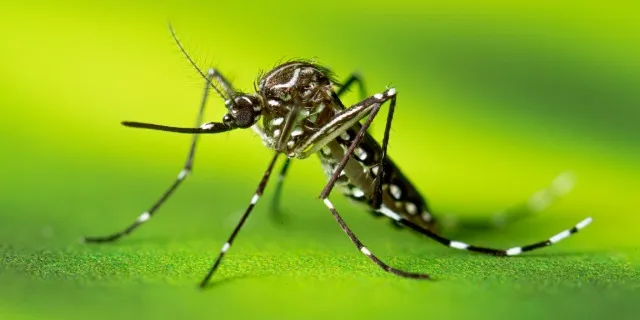WHO Report Advocates for Vaccines to Combat Antibiotic Resistance
LATEST news
-
 Ethiopia Confirms First Marburg Virus Outbreak as Health Agencies Work to Contain SpreadNews
Ethiopia Confirms First Marburg Virus Outbreak as Health Agencies Work to Contain SpreadNews -
 Both Diet and Regular Sodas May Increase Risk of Liver DiseaseNews
Both Diet and Regular Sodas May Increase Risk of Liver DiseaseNews -
 World Rabies Day 2025: A Call to Action from the Global CommunityNews
World Rabies Day 2025: A Call to Action from the Global CommunityNews -
 Day-biting Invader: Aedes aegypti Mosquito Discovered in South AshlandNews
Day-biting Invader: Aedes aegypti Mosquito Discovered in South AshlandNews -
 Australian Scientists Create World’s First Lab-Grown Human Skin with Blood SupplyNews
Australian Scientists Create World’s First Lab-Grown Human Skin with Blood SupplyNews
In a latest report released by World Health Organization (WHO), vaccines are underlined as capable tools for reducing the increasing burden of AMSR. In addressing the issue of antibiotic resistance as more and more people die due to the availability of resistant bacteria, WHO has estimated that use of vaccines to avoid antibiotics would not only lead to less use of antibiotics but also save many lives.
Antibiotic resistance is a situation where antibiotics and other antimicrobial drugs cease to produce desired results, and hence treatable infections become unmanageable. The published estimates indicate that if no action is taken, antibiotic resistance could lead to millions of deaths by 2045 according to the Lancet. As people continue to run for antibiotics in all occasions including viral and bacterial infections, it is time to look for better options.
Vaccines as a Key Strategy
The WHO’s report indicates that annual provision of about 2.5 billion shots of vaccines can help reduce the overdependence on antibiotic. By preventable disease vaccination is a more effective approach other than addressing the prevalence of diseases that necessitate antibiotic prescriptions. Certain vaccines are already out there but they were not often used organizedly which shows that they can potentially make a lot of difference now.
The organization also supports vaccines as an element of the strategies that can be used to counteract AMR. Although they can reduce the chances of getting an infection and, therefore, lower the likelihood of getting drug-resistant pathogens and using antibiotics. In addition, the WHO has urged the acceleration of researching for and deployment of new vaccines to support this effort.
Overall, employment of vaccines appears to be a promising approach to decrease the increasing menace of antibiotic resistance and make the vaccines essential in the provision of global health security.
